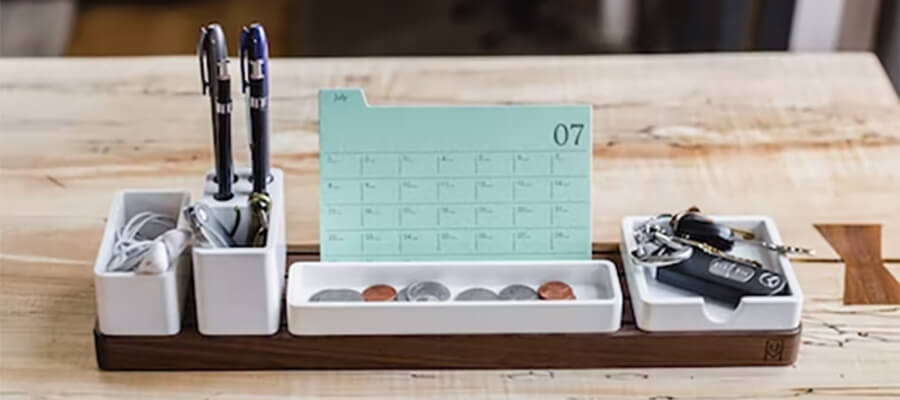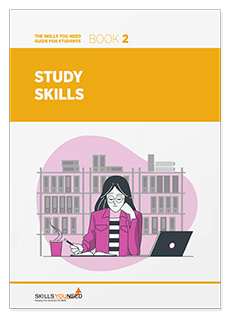Studying At Home: Finding Motivation
See also: Self-MotivationBeing able to study from home is something that has blossomed in the last decade, providing people everywhere with the flexibility to study what they want, in their own time, and with minimal (if any) time on campus.
This learning approach has become increasingly popular since the COVID-19 pandemic. From parents trying to up-skill to return to the workforce, to those working full-time who still want to study, remote learning is an incredible option. With so many university courses online ranging from certificate-level qualifications to a bachelor's degree and everything in between, there is something for every budding student.
With the comforts of being at home while you study, how exactly do you find the motivation to complete your coursework?
Remember why you’re studying
There is a reason you chose to study. Whether you’re wanting to upskill or you’re wanting a career change, you need to try to remember why you’re there, what you hope to get out of your studies and where your studies can take you and your future. Recalling your end goal can keep you focused, motivated and on track.
Stay organised
Having an organised workstation is vital to keeping motivated. If you don’t have everything you need for studying, you’re more likely to put it off until you’ve collected everything you need.
Before you sit down to study, make sure you have your custom stationery, your laptop, your water and some brain food to keep you going for the day. Make sure everything in your workspace is organised and easily accessible so you’re not fumbling around through the day looking for items you need.

Set realistic goals
Setting goals for yourself is a fantastic way to stay motivated. Your goals don’t have to be long-term, but they do have to be attainable.
Daily goals can be a great way to keep you on track with your studying, especially when you’re completing university through online courses and need to keep yourself motivated. Every day, write yourself a realistic ‘to-do’ list and check items off as you go.
Your ‘to-do’ list could be as simple as including:
- Breaks, so you make sure you eat and stay hydrated so you don’t burn yourself out
- Completing the reading of course material
- Annotating course material
- Following up with any emails or group messages for support
- Any lectures you have on that day
- Noting any due dates down
This daily list can make sure you’re focused on small tasks that will help you towards a weekly goal, as mentioned below. It’s important to only include things on your list you feel you can finish that day, otherwise, you’re setting yourself up for failure and that can dampen your spirits when it comes to staying motivated while studying from home.
Weekly goals can include finishing an assignment, finessing your notes or even a goal to write your major goals of completing your units, and eventually your course (and getting that long-awaited, well-earned qualification at the end of it!)
Use a reward system
If you’re struggling to keep on top of your tasks, set yourself a rewards system.
Write your list of goals, from small to large and have rewards to gift yourself when they’ve been completed.
As an example, your list may look like this:
- Finish essay - watch a movie you’ve been eyeing on Netflix
- Get through an online class - make yourself an iced coffee
- Finish your unit - buy those new AirPods you’ve been looking at for a few months.
Whatever your goals and your corresponding rewards, make them something you’ll look forward to. If you’re food oriented, maybe eating out at a new restaurant will be a good reward, or maybe ordering in. If you enjoy new stationery, treat yourself to some new pens.
Make your rewards as significant as the accomplishment, it’s a fantastic way to stay on top of your tasks and be rewarded for them too.
Time management
Time management is a skill that is underrated when it comes to studying, whether at home or in a classroom.
Time management can look like:
- A calendar with deadlines marked,
- A list of tasks in order or prioritisation,
- Setting reminders in your phone for important dates.
However you manage your time, make sure it works for you. If it’s not working, try a new tactic.

Establish a routine
Studying from home means you don’t have the pressure of a lecturer or professor looming over you while you work. You could sleep until lunchtime and potter around the house in your pyjamas, but as long as you attend your online lectures and get the coursework done, it’s fine…right?
By having a daily routine of waking up at the same time, having a good breakfast around the same time and writing out and, of course, following your ‘to-do’ list, you create a body clock that can help you feel well-rested and ready to tackle the day’s work. You’ll feel more motivated, energised and more focussed too.
Don’t forget to set yourself a finish time for your work! There’s no use studying until 1am, just to get up at 7am and start your day again as you’ll just be exhausted for the next day.
If you’re stuck, don’t dwell, ask for help
You’re not alone just because you’re studying from home.
You will have the support of your peers through group chats (such as WhatsApp or even Microsoft Teams) where you can bounce ideas off each other and support one another through your course material. If you’re questioning something, chances are one of your classmates is wondering the same. There are no stupid questions.
You will also have access to your lecturers through email or perhaps a student portal - if you need help, there’s no shame in asking for it. If you dwell on your confusion or misunderstanding, this may put you behind and you may find it difficult to catch up.
Further Reading from Skills You Need
The Skills You Need Guide for Students

Develop the skills you need to make the most of your time as a student.
Our eBooks are ideal for students at all stages of education, school, college and university. They are full of easy-to-follow practical information that will help you to learn more effectively and get better grades.
Staying organised, utilising active time management skills and setting yourself realistic and attainable goals will help you to stay motivated and get the most out of your course and get you to the qualification you’re working towards that much smoother.
About the Author
Ashleigh Galea (she/her) is a freelance writer who loves to research, learn and write about anything and everything. A former customer service extraordinaire, Ashleigh became a mum in 2022 and, in looking for a job that could work around her family, found she really enjoys writing. When she’s not writing or on “mum-duty”, Ashleigh also freelances as a hair and makeup artist.


